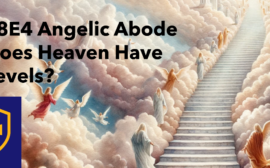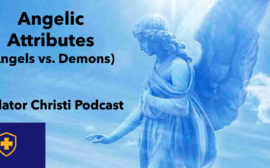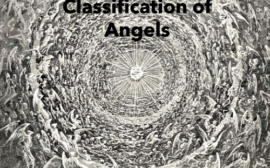By: Brian Chilton | October 24, 2017
Last week, I attended my first Ph.D. seminar. In short, the experience was amazing. I cannot wait to experience the other seminars in the program. Dr. Steve Lowe mentioned something that highly intrigued me. He mentioned what is called ecological theology. The term “ecology” is taken from the Greek term “oikos” which refers to the earth or a dwelling place. Throughout Scripture, the spiritual growth of individuals is likened to the ecological growth in creation. Gordon Zerbe states that “From beginning to end, the first part to last part, the Bible is an ecological book.”[1] From Dr. Lowe’s lectures, I learned of six ways that the biblical ecological depiction of creation relates to our spiritual relationships by using the term “oikos.”
The Ecological Relationship within the Human Body (2 Cor. 5:1). In 2 Corinthains 5:1, Paul describes the earthy body. He employs the term “oikos” which is translated “house” in the text. In this passage, he describes this oikos relationship as that which one has with his or her own body. The body works together in a marvelous fashion. When describing the relationship that one part of the body has with another, Paul notes that every part of the body is important for its functionality as it is for the church (1 Cor. 12:15-26).
The Ecological Relationship within Church (Rom. 16:5). In Romans 16:5, Paul asks the Roman church to greet Epenetus, his dear friend. Oikos is used for the house where the church was located. In many respects, the church is described as a living organism that works together. Dr. Lowe mentioned that the New Testament writers describe the growth in the church the same as they do when they describe growth in creation.[2]
The Ecological Relationship within Families (1 Cor. 1:16). Paul uses the term “oikos” to refer to Stephanas’ household. Again, the term oikos is used also for other ecological terms. Thus, the family unit is in many ways comparable to a living unit that can grow together or be poisoned. Remember that this Thanksgiving and Christmas when you are tempted to discuss politics.
The Ecological Relationship within Heaven (Jn. 14:2). Jesus likens heaven to an oikos. He notes that his Father’s house (oikos) has many dwelling places. Thus, the believer’s relationship with others in heaven will experience this ecological unity that God employs on earth.
The Ecological Relationship within Earth (Rev. 16:14). John uses a compound word to describe the earth in Revelation 16:14. He describes the earth towards the end of time as an “oikoumene”—that is, an inhabited world. One does not need to be a rocket scientist to observe the intrinsic relationships between biological systems on earth.
The Ecological Relationship within the Divine Relationship (Eph. 2:19-22). Paul notes in Ephesians 2:19-22 that a person’s relationship within the divine Triune Godhead enters a relationship of an ecological kind. The believer upon the beginning of his or her salvation becomes members of God’s household –“oikeioi” (Eph. 2:19). The foundation of such a unity is found in the building (“oikodome”) that Jesus has established and is grown into a dwelling place (“katoiketerion”) by the Holy Spirit (Eph. 2:20-22). God is an eternal relationship in the Father, Son, and Holy Spirit. The believer is ushered into this eternal relationship in an united, ecological way.
Conclusion
So what do we take from this? I found a powerful lesson in this study. That is, we are not as individualistic as we like to think that we are. Our relationship in Christ is dependent upon the Triune God. Our relationship with our families, churches, communities, and with earth itself is a one that requires us to become dependent. As a people, we depend on one another. As people of faith, we are united to the body of faith. As a child of God, we are dependent upon the very living God who gave us life. In a matter of speaking, individualism is shattered when we understand how much we depend on God and each other.
Notes
[1] Gordon Zerbe, “Ecology According to New Testament,” Direction , 21, no. 2 (1992): 15-26.
[2] Dr. Lowe mentioned the use of the term “auxano” in this regard. Stephen Lowe, “Research Methods and Teaching in Higher Education,” (PowerPoint presentation, Liberty University, October 17, 2017).
About the Author
 Brian Chilton is the founder of BellatorChristi.com and is the host of The Bellator Christi Podcast. He received his Master of Divinity in Theology from Liberty University (with high distinction); his Bachelor of Science in Religious Studies and Philosophy from Gardner-Webb University (with honors); and received certification in Christian Apologetics from Biola University. Brian is currently a student of the Ph.D. program in Theology and Apologetics at Liberty University. Brian is full member of the International Society of Christian Apologetics and the Christian Apologetics Alliance. Brian has been in the ministry for over 14 years and serves as the pastor of Huntsville Baptist Church in Yadkinville, North Carolina.
Brian Chilton is the founder of BellatorChristi.com and is the host of The Bellator Christi Podcast. He received his Master of Divinity in Theology from Liberty University (with high distinction); his Bachelor of Science in Religious Studies and Philosophy from Gardner-Webb University (with honors); and received certification in Christian Apologetics from Biola University. Brian is currently a student of the Ph.D. program in Theology and Apologetics at Liberty University. Brian is full member of the International Society of Christian Apologetics and the Christian Apologetics Alliance. Brian has been in the ministry for over 14 years and serves as the pastor of Huntsville Baptist Church in Yadkinville, North Carolina.
© 2017. BellatorChristi.com.






[…] that “From beginning to end, the first part to last part, the Bible is an ecological book.”[1] From Dr. Lowe’s lectures, I learned of six ways that the biblical ecological depiction of […]